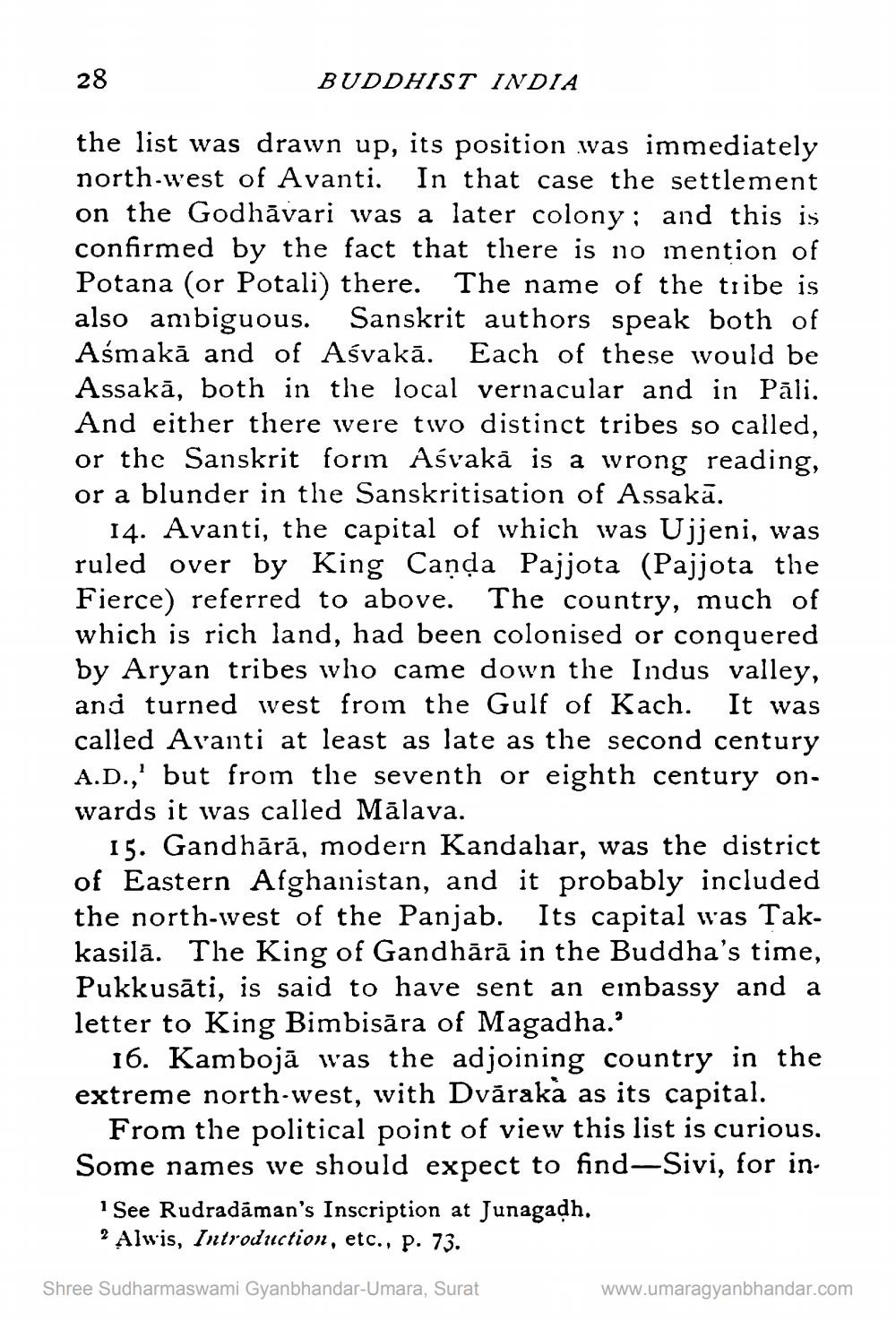________________
28
BUDDHIST INDIA
the list was drawn up, its position was immediately north-west of Avanti. In that case the settlement on the Godhāvari was a later colony; and this is confirmed by the fact that there is no mention of Potana (or Potali) there. The name of the tribe is also ambiguous. Sanskrit authors speak both of Asmakā and of Aśvakā. Each of these would be Assakā, both in the local vernacular and in Pāli. And either there were two distinct tribes so called, or the Sanskrit form Asvaka is a wrong reading, or a blunder in the Sanskritisation of Assakā.
14. Avanti, the capital of which was Ujjeni, was ruled over by King Canda Pajjota (Pajjota the Fierce) referred to above. The country, much of which is rich land, had been colonised or conquered by Aryan tribes who came down the Indus valley, and turned west from the Gulf of Kach. It was called Avanti at least as late as the second century A.D.,' but from the seventh or eighth century onwards it was called Malava.
15. Gandhārā, modern Kandahar, was the district of Eastern Afghanistan, and it probably included the north-west of the Panjab. Its capital was Takkasilā. The King of Gandhārā in the Buddha's time, Pukkusati, is said to have sent an embassy and a letter to King Bimbisāra of Magadha.'
16. Kamboja was the adjoining country in the extreme north-west, with Dvaraka as its capital.
From the political point of view this list is curious. Some names we should expect to find-Sivi, for in
1 See Rudradāman's Inscription at Junagadh. 2 Alwis, Introduction, etc., p. 73.
Shree Sudharmaswami Gyanbhandar-Umara, Surat
www.umaragyanbhandar.com




